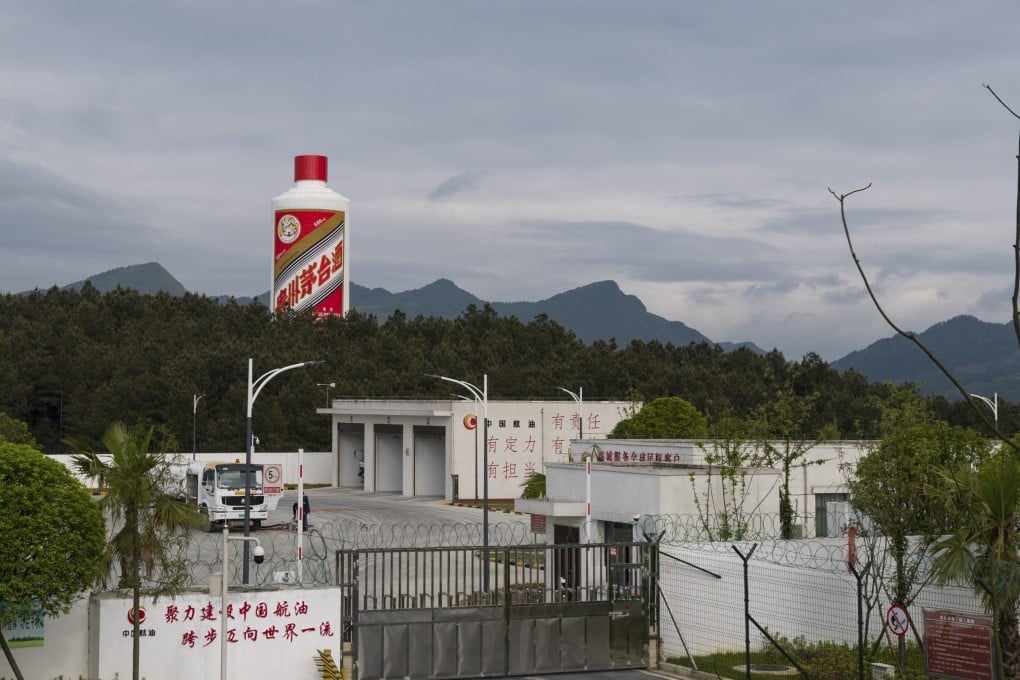Ebbing demand for Maotai, China’s favourite baijiu, adds to debt concerns
A persistent slump in sentiment has taken the wind out of Kweichow Moutai’s share price and the price of its preemium spirit known as baijiu

In the Chinese village of Maotai, the local firewater named after the town is not only a key source of income, it’s a barometer of the country’s battered consumer market and the economic misfortunes of its home province.
In the weeks before Lunar New Year, tourists traditionally flock to the town, nestled in the mountains of the southwestern province of Guizhou, to buy the baijiu, or white spirit, as gifts. This year, those crowds were notably smaller.
The premium spirit made locally by Kweichow Moutai has for decades been a fixture at weddings, business dinners and state functions, but its sales in the past two years have been hit by poor consumer and business confidence.
Victor Shih, a professor of political science at the University of California San Diego, says Moutai’s strong cash flows have been “an important part of the strategy to help Guizhou’s government repay debt that is constantly coming due”. That means any contraction in Moutai’s profit constitutes a problem for the government, he added.
Shanghai-listed Kweichow Moutai is majority-owned by Moutai Group, in turn wholly owned by Guizhou, China’s second-most indebted province. Its contribution to the local economy is enormous, not only as a major employer but also as a vehicle for the province to raise revenue and pay down debt.

Long considered a bellwether of Chinese consumer demand, its retail performance has been squeezed in recent years by wider deflationary pressures.